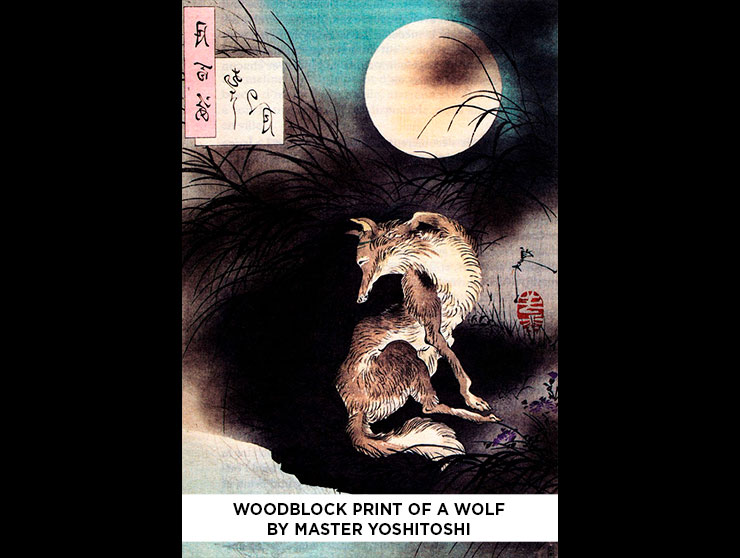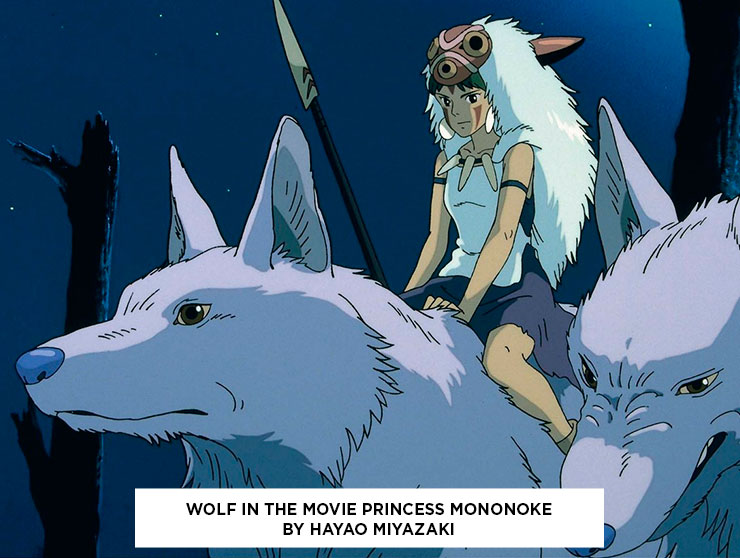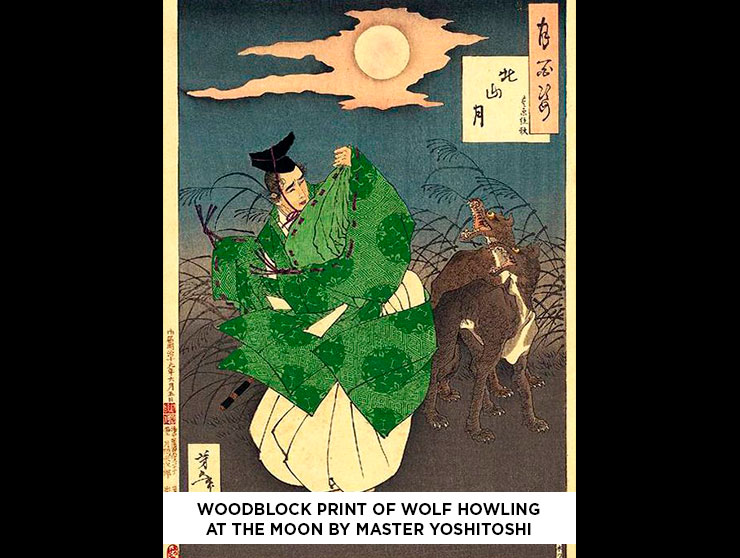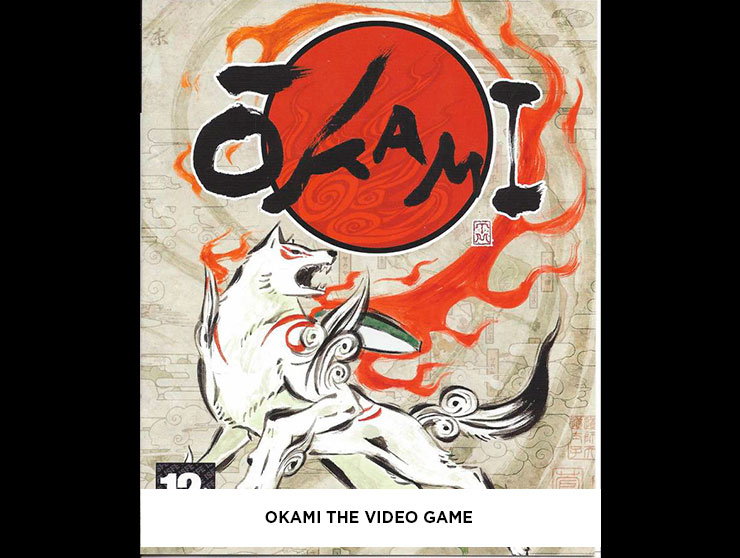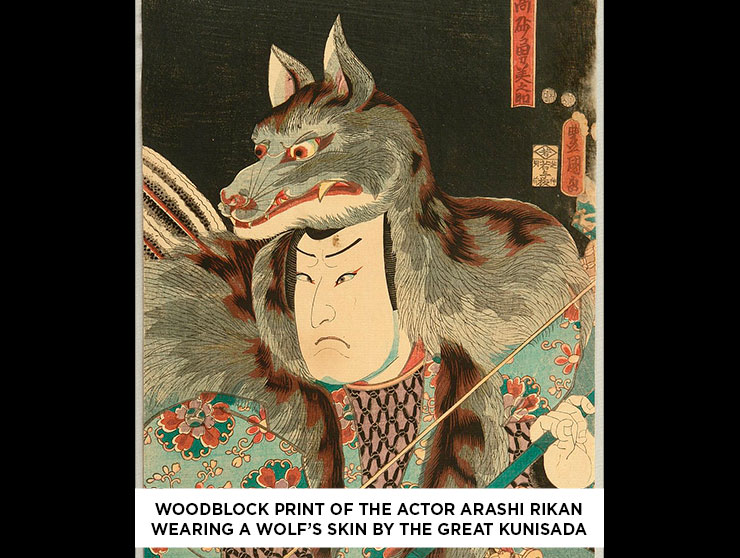Wolf 狼
In Japanese, the word for wolf is 狼, ōkami, which also mean “great-diety”. The wolf is viewed as a guardian or as messenger of the mountain god. As you might know, in the Shinto religion, every mountain is a god. Being worshiped by the woodcutters for giving wood, the most famous mountain god is certainly Fuji-san, mount Fuji.
As seen in Hayao Miyazaki’s movie Princess Mononoke, wolfs are savage and strong animals that reign in the mountain. With their strength, they assure harmony among all the living creatures in their environment. In some stories, it is said that the wolf will helps lost humans by escorting them out of the mountain. This ritual was called “okuriōkami » and can be translated as “wolf escort”. In multiples villages, wolfs were seen as messengers that would howl at the moon to warn before an earthquake or a tsunami.
Even though they were worshiped, wolfs were still perceived as savage and dangerous: They attacked livestock and transmitted rabies. As in Europe, wolf bounties appeared to a point where laws were put in place to diminish the wolf populations. The laws enforced during the Meiji era were so effective that today there is no more wolfs in Japan. Since 1905, the wolf is extinct from Japan but this adds to its myths: people keep relics of the wolfs (like claws, fangs, bones and skull) as protection talismans.
Note: In the game Okami by Capcom, Amaterasu, goddess of the sun, is represented as a wolf. There are no mentions of her appearing as a wolf in Japanese mythology. The authors of the game simply made a wordplay with the reading of the name of the goddess: Amaterasu which’s kanjis can be read as ōkami.
In Japanese tattoo, the wolf is a symbolism of strength and divine protection. But this design is not found in traditional Japanese tattoo. It can be used to make a nice neotraditional Japanese tattoo.
